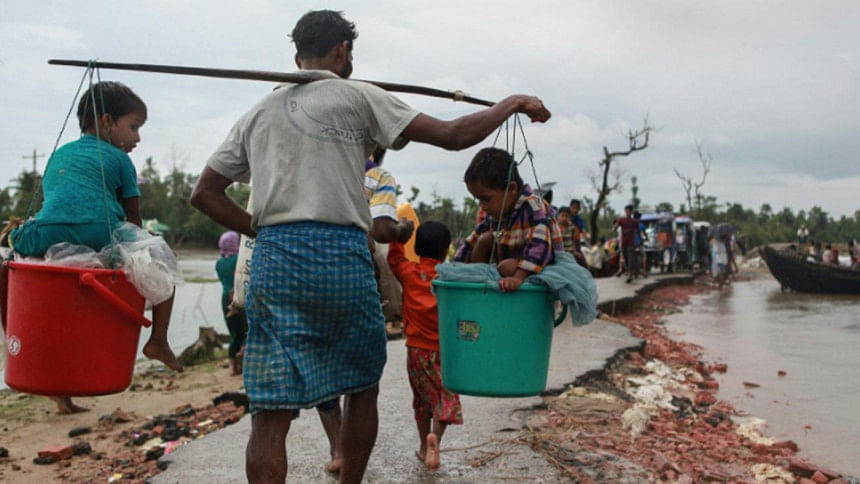Rohingyas may die due to lack of food: Save the Children

Save the Children fears death among the Rohingya refugees due to shortage of food, shelter, water and basic hygiene support in the makeshift camps in Cox's Bazar.
It said many people are arriving hungry, exhausted and with no food or water, having left their homes in fear of their lives.
"I'm particularly worried that the demand for food, shelter, water and basic hygiene support is not being met due to the sheer number of people in need. If families can't meet their basic needs, the suffering will get even worse and lives could be lost," said Save the Children's Country Director in Bangladesh Mark Pierce.
In a statement issued today, he said local communities have been extremely accommodating, often welcoming the Rohingyas into their homes and sharing precious food and water.
"Aid agencies are doing all they can to help, however the humanitarian response needs to be rapidly scaled up, and that can only be done if the international community steps up funding," he said.
According to the UN Migration Agency, IOM, 409,000 Rohingyas fled violence in Myanmar following crackdown against them in response to Rohingya insurgents' attacks on police posts and an army base on August 25.
Last week, IOM said one million Rohingya may flee to Bangladesh by the end of the year if the trend of Rohingya influx of 10,000 to 20,000 a day continues. Unicef says 60 percent of the Rohingyas fleeing Myanmar are children.
"The scale of the influx of Rohingyas arriving in Cox's Bazar is unprecedented and it's putting huge stress on host communities and humanitarian agencies," said Mark Pierce, appreciating the efforts of Bangladesh that has generously allowed the Rohingyas amid humanitarian crisis.
Amongst the Rohingyas who fled Myanmar are more than 1,100 separated or unaccompanied children, who often travelled long distances through rain and mud. Others became orphans when their parents were killed in the violence.
"Beneath the hardship and suffering faced by the Rohingyas who've arrived in Bangladesh, there is a child protection crisis on our doorstep. We're seeing number of children arriving alone and in desperate need of help," Pierce said.
"This is a real concern as these children are in an especially vulnerable position, being at increased risk of exploitation and abuse, as well as things like child trafficking."
Pierce said many children who fled northern Rakhine State would need some level of emotional or psychological support.
"Some children have witnessed violence and killing. Some have been shot and others have seen their homes set on fire. Some have reportedly watched their parents being killed," he said.
"The distress and trauma that can arise from experiencing these horrific events needs to be addressed. It needs to form part of this humanitarian response."

 For all latest news, follow The Daily Star's Google News channel.
For all latest news, follow The Daily Star's Google News channel. 



Comments